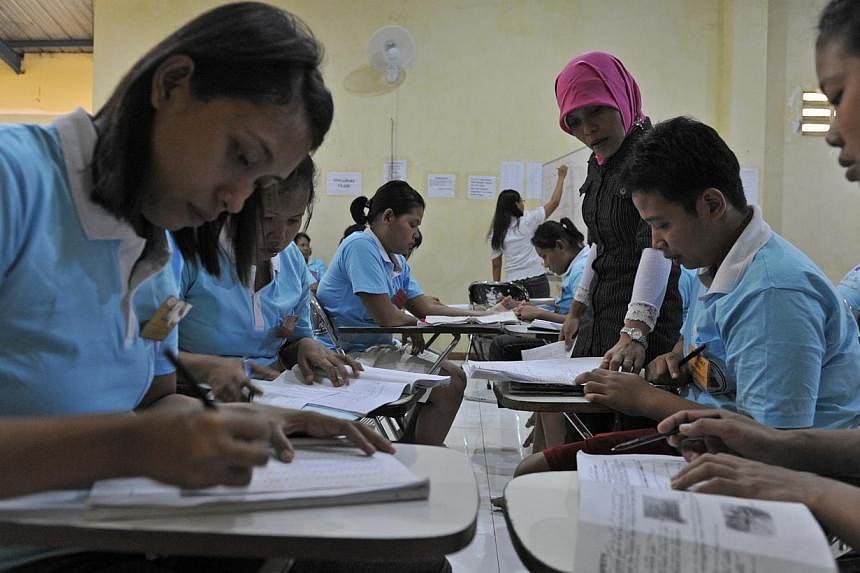JAKARTA (Jakarta Post/Asia News Network) - Indonesian domestic workers face poor treatment by employers back home just as they do overseas, a rights group and workers say in response to President Joko "Jokowi" Widodo's vow to stop Indonesian women from working abroad as maids.
"How come we expect other countries to protect (domestic workers) when even in their own country they are unprotected?" Nursyahbani Katjasungkana, a member of the National Commission on Violence Against Women (Komnas Perempuan) and a former lawmaker said on Sunday, referring to the lack of legal protection for domestic workers.
She noted during a discussion at the Jakarta Legal Aid Institute that the House of Representatives has not been able to pass a bill on domestic workers' protection although it was tabled 11 years ago.
Based on data released by the National Network for Domestic Workers Advocacy (Jala PRT), there were 332 cases of mistreatment and violence against domestic workers in 2013, slightly increased from 322 cases in 2012.
Domestic worker Santi spoke about her experience during the discussion, which was held to commemorate National Domestic Workers Day. The 35-year-old said the government has done little to protect workers like her. There is almost no legal protection, including in relation to the minimum wage and other workers' rights, for those in her profession.
"It is sad that our profession is not categorised as 'worker' and has no legal basis," Santi noted.
Santi, who works for a Japanese family, said that she received Rp 1.8 million (S$191.34) per month for working from 8am until 5pm from Monday to Saturday, and added that she also has to work on national holidays.
"When I asked my boss why I don't get a day off during national holidays, he argued that there were no clear regulations about my profession that prohibit me from working during holidays," she said.
Last Friday, Jokowi vowed to stop sending Indonesians to work as housemaids abroad, saying that the poor treatment they receive was humiliating for the nation.
Speaking at a congress of the Hanura Party in Surakarta, Central Java, the President said he felt "very ashamed" during a recent visit to Malaysia when he raised the issue of Indonesian migrant workers, including maids, with his host Prime Minister Najib Razak.
But employers back home in Indonesia seem similarly oblivious to workers' welfare.
Housewife Budi Irianti said she was not aware that there was a National Domestic Workers Day in Indonesia.
"My maids do not work on Sunday, but if the domestic workers' day fell on a work day, I don't think I could give them the day off because the commemoration is still not common yet," Budi said.
Ana, another domestic helper, earns Rp1.2 million per month for working from Monday to Saturday for a family in Kemang, South Jakarta. The money is not enough to cover her and her five-year-old daughter's daily needs, she said.
"My boss also reduces my salary if I do not show up for work, even when I told him that my daughter was very sick," she said.
She said that the salary includes her meals and transportation allowance, adding that she is not allowed to eat anything from her boss's house.

